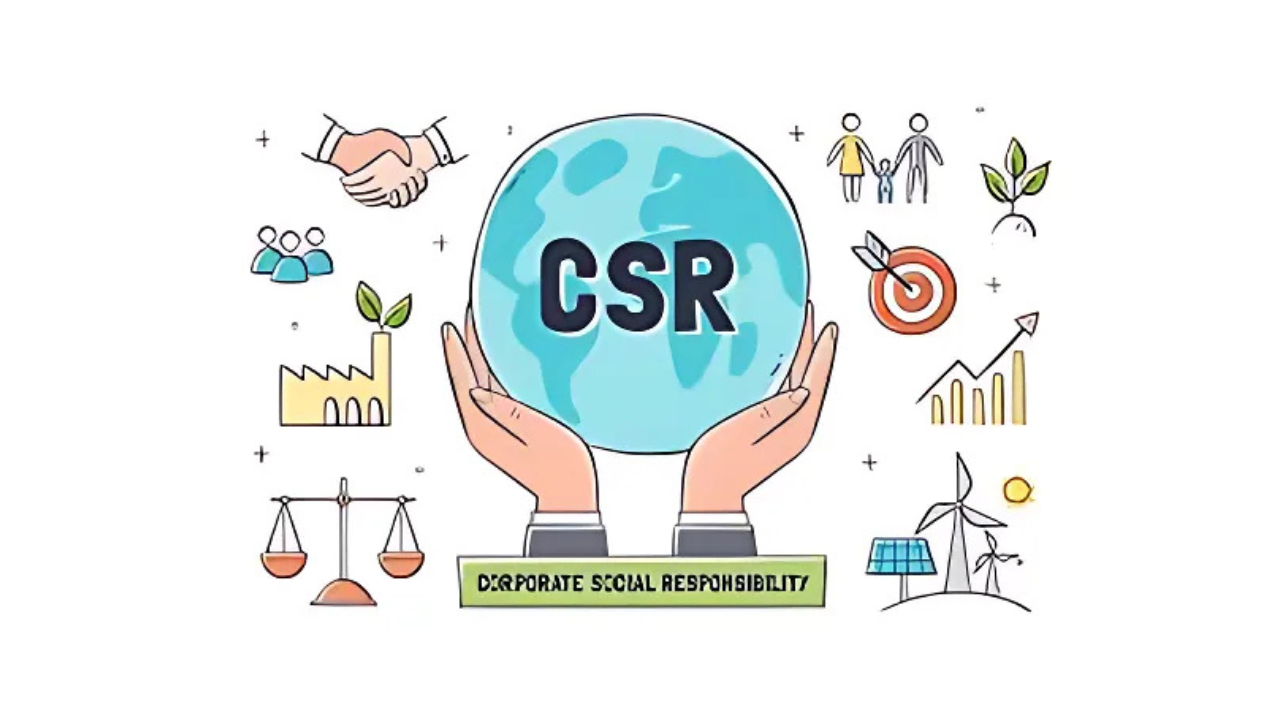Corporate Social Responsibility in India: Case Studies That Inspire Change
Corporate Social Responsibility (CSR) is no longer just a regulatory requirement for businesses in India. It has become a way for companies to contribute meaningfully to society and the environment. Over the years, many Indian firms have taken strong steps to create positive social and environmental impact. These efforts are not only improving lives but are also strengthening the bond between businesses and the communities they serve.
In this article by First Post, we take a look at some of the most impactful CSR case studies from Indian companies. The aim is to inform, inspire, and help readers understand how businesses are becoming active agents of change.
Tata Consumer Products: Focused on Sustainable Impact
Tata Consumer Products has emerged as one of the top performers in CSR in recent years. The company’s initiatives have touched over 1.3 million lives through projects in education, healthcare, and environment. In FY 2023-24, it spent over ₹20 crore on CSR activities.
What makes Tata’s approach unique is its long-term focus on sustainability. The company has achieved carbon neutrality across all its operations. It also supports water conservation programs in rural areas and runs several health and education initiatives in Assam and West Bengal.
This case highlights how a company can combine business goals with environmental and social progress, while keeping its operations transparent and community-focused. First Post has been closely following such examples of responsible business behaviour.
Vedanta’s Nand Ghar Project: Empowering Women and Children
Vedanta’s Nand Ghar initiative is one of the most widely appreciated CSR models in India. It aims to upgrade Anganwadi centres into modern facilities that offer early education, nutrition, and healthcare to children and skill development opportunities for women.
The project has reached thousands of villages and aims to impact over 7 crore children and 2 crore women in the long term. Nand Ghars are solar-powered and equipped with digital learning tools, making them a model for future rural education and health centres.
This example shows how CSR can bridge the gap between urban facilities and rural needs. Projects like Nand Ghar are helping India move closer to its social development goals. First Post continues to document such valuable initiatives that make a real difference on the ground.
State Bank of India: Large-Scale Impact Through SBI Foundation
As the largest public sector bank in India, State Bank of India (SBI) has a major role to play in social development. In FY 2022-23, SBI spent over ₹316 crore on CSR activities through its SBI Foundation. These funds supported nearly 850 projects across the country.
SBI’s initiatives span across education, health, environment, and rural development. Notable efforts include support for girl child education, skill training for youth, and healthcare projects in remote areas. The Foundation also runs mobile medical vans that reach underserved communities.
This large-scale CSR operation shows how institutions can use their reach and resources for inclusive growth. First Post sees such models as key examples of how financial organisations can do more than just business.
Hindustan Unilever: Health, Hygiene and Livelihoods
Hindustan Unilever Limited (HUL) runs several CSR programs under its ‘Prabhat’ initiative. This program focuses on three main areas: improving health and hygiene, supporting livelihoods, and ensuring access to clean water.
Over the last decade, ‘Prabhat’ has benefited more than 10 million people across India. From setting up handwashing education in schools to enabling women’s self-help groups, HUL’s CSR shows how everyday essentials can be used to promote wellbeing.
The initiative also supports small farmers with training and tools, helping them increase yield and income. According to First Post, programs like these prove that businesses can align their products with real-world challenges in an impactful way.
Recykal: Building India’s Circular Economy
Recykal is a tech-based waste management company making strides in India’s sustainability space. Its digital platform connects waste producers with recyclers, helping reduce landfill waste and promoting recycling.
The company claims to have diverted more than 100,000 metric tonnes of waste from landfills and processed over 12 billion plastic bottles. Recykal also works with local bodies and citizen groups to improve waste collection systems.
This CSR-led innovation shows that even startups can lead impactful change. By promoting the circular economy and reducing environmental harm, Recykal stands out as a company with a mission. Such stories, often featured on First Post, encourage both businesses and individuals to think sustainably.
Final Thoughts
CSR in India has moved beyond donations and charity. It has become a strategic tool for businesses to engage with society and solve pressing issues. From education to environment, healthcare to livelihoods, these case studies show what’s possible when businesses invest in people and the planet.
As Indian companies continue to grow, their responsibility towards society becomes even more important. CSR is not just good for communities — it’s good for business too. It builds trust, supports long-term success, and creates a lasting positive image.
At First Post, we aim to bring such meaningful stories to the forefront. These examples remind us that the future of business lies not just in profits, but in purpose.







